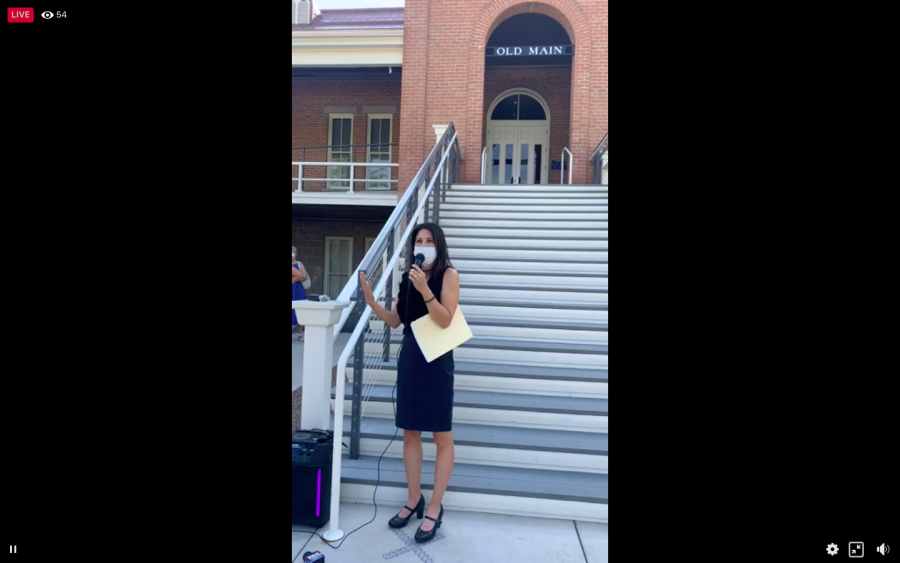The Coalition for Academic Justice at the University of Arizona held their second press conference Tuesday, Aug. 4 at Old Main, during which they announced plans to unionize.
RELATED: UA announces acquisition of Ashford University and creation of UA Global Campus
The coalition’s announcement came at the beginning of the meeting and was touched on at the end by CAJUA member and Associate Professor Celeste Bustamante.
This union would include and represent the members of the UA community the coalition has been representing and advocating for faculty, staff and graduate students. Bustamante said that plans and logistics are still in the process, but they only need 50 members to unionize and have hundreds interested, with the site currently taking registration of members.
Bustamante closed the press conference with a statement directed towards senior leadership.
“In closing we ask, no, we implore you to lead collaboratively and not shift responsibility to deans and department heads, adopt a no-furlough borrowing plan,” Bustamante said. “We are recommending primarily remote teaching, but if you insist on reentry, modify the plan so that it’s based on data, not dates, and publicly state which metrics will be used to assess the plan. The CAJUA is not going anywhere, as you can see we are gaining strength. We know that we are stronger when faculty, staff, and graduate students are united, and for this reason CAJUA as a coalition has decided to form a union.”
The press conference came after weeks of the coalition being incredibly vocal against the university’s current reentry plan and proposed furlough plan on social media platforms and in the community alike. Speakers at the press conference read statements of their own statements and statements from others that proposed alternatives to the current reentry and furlough plans made by the senior leadership at UA.
The proposed furlough plan has been highly criticized by CAJUA, which they spoke more about after the discussion of this plan at the Faculty Senate meeting on Aug. 3.
Marcia Klotz, an associate professor who was also selected to be on the Graduate Fellowships Faculty Advisory Committee, gave an alternative plan that was created by a team of experts for CAJUA that would focus on borrowing, instead of pay cuts of almost every university employee.
A CAJUA fact sheet highlighted the results of GFFAC’s findings that were presented at the Aug. 3 meeting; they said there are borrowing options that would mitigate losses without layoffs or salary cuts.
“They also reported the UA administration’s rate of furlough is 4.4 times the rate of furloughs among our closest peers,” CAJUA reported. “The committee cautioned against potential ‘irreparable harm’ that might be caused by salary cuts as suggested by their survey results in which 1,175 faculty and 2,816 staff responded. Over 38% of faculty and over 25% of staff responded that they were likely to seek out new employment due to the extreme furlough/pay cut plan.”
CAJUA touched on their criticism of the reentry plan at the meeting, asking senior leadership to reconsider the reentry plan based on local metrics and not the academic calendar.
A coalition member read from a proposed alternative reentry plan that was made by experts at the College of Public Health, stating that the staged progression that is currently in play would not account for the incubation time of the coronavirus, as well as not being a sufficient amount of time to assess whether the staged progression was safely working.
They called for more transparency in which metrics are being used and to pay attention to data more than the calendar dates.
Follow Maggie Rockwell on Twitter









